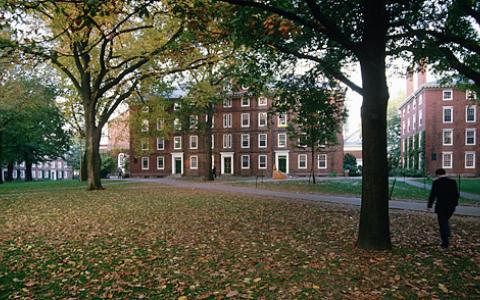
(Forbes) From choosing a high school in eighth grade to deciding whether or not to transfer, many (but not all) of the families I work with end up choosing public schools.
After all, public schools are funded by property taxes. Many families who can afford private school live somewhere with amazing public schools, and their students would be better off there. Here’s why:
Attracts more qualified teachers
Although certification isn’t a guarantee of quality, thanks to teaching credential requirements, public schools also guarantee a standard, minimum qualification for teachers. And although private schools offer other benefits (and although teachers are not solely motivated by salary), when competing for the best teachers, public schools do have an advantage. On average, American private school teachers earn almost $14,000 less per year than public school teachers. That’s especially significant considering that US teachers overall make 30% less than the average college-educated worker. Of course, there are many reasons why a teacher chooses to work at a given school, but the best teachers are more likely to teach where their salary will match their talent, which often means well-funded public schools.
Achieves better (test) results
Student test scores may be an imperfect measure of student achievement, but public schools often outpace private schools in this measure. Although on average private school students score higher on standardized tests, public school students score higher when the results are adjusted for family income level. A recent report by the Institute of Education Sciences (IES) found disappointing results for Secretary Devos’s D.C. Opportunity Scholarship Program. Students who stayed at even underperforming public schools still scored 7.3% higher than those who used the program’s scholarships to attend private schools. Students enrolled in similar voucher programs in Indiana and Louisiana also experienced declining test scores. Of course, test scores are only one litmus test for determining the quality of a school, scores aren’t the only thing public schools have to offer.
More race/class diversity
Although private schools may at times be racially diverse, they are, by definition, never going to be as diverse socioeconomically as public schools. There are countless benefits to attending a more diverse school, from “critical thinking, problem-solving, and creativity” to reduced anxiety, increased confidence and increased comfort in diverse settings—soft skills that will benefit students not just in school but throughout their adult lives.
Public schools: as good as your neighborhood
Instead of spending money on private school, why not spend money moving to a neighborhood with excellent public schools? I spoke with Edith Yang, a broker representing The Centrale building in Manhattan, who says that one of the things the incoming occupants really like about the building is the public schools it’s zoned for. Both public schools in the area receive top marks—Niche gives both P.S. 59 Beekman Hill International and JHS 104 an A rating. She pointed out that “your property taxes are funding the schools, so why wouldn’t you turn that cost into an investment?” When parents live in wealthy neighborhoods but send their children to private school, they are essentially paying twice for that education. Instead, parents should enjoy the benefits of their tax dollars while their children enjoy a diverse and enriching education in the trusted hands of well-paid and highly-qualified teachers.
More intellectual diversity
This final point is one of the primary reasons I often recommend public school to my clients. Private schools are often very selective about the students they admit, which can lead to a more homogeneous class both in terms of grade point average and in shared areas of interest. Many of my private school students notice that other students tend to have the exact same interests (DECA, tennis, etc), while my students in public schools are surrounded by students with diverse interests and levels of ability.
Although there’s a benefit to being around other motivated, high-achieving students, it can make it difficult to stand out from the crowd. In contrast, public schools accept every student, so there’s a much wider range of students in terms of achievement level, drive, areas of interest and skill set. Many students are better able to stand out and achieve at a high level in a standard public school, especially when they have tutors and good support at home. When students are able to stand out among their peers, they feel more confident in their abilities and set their sights on higher goals.



